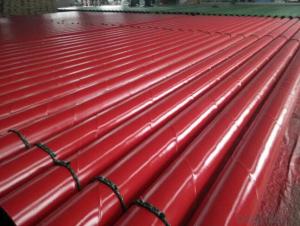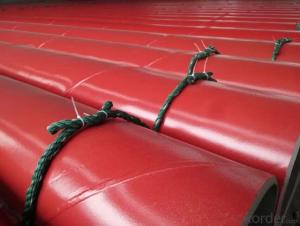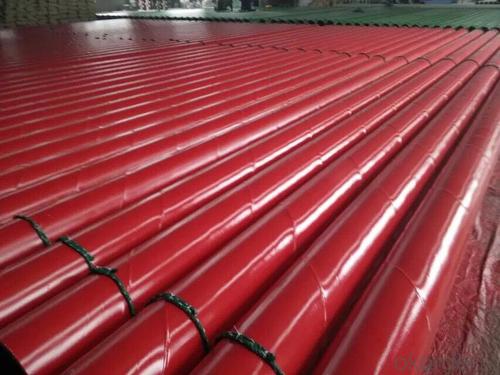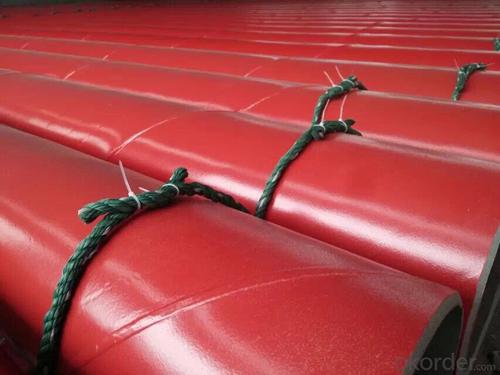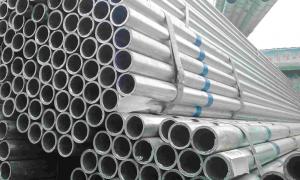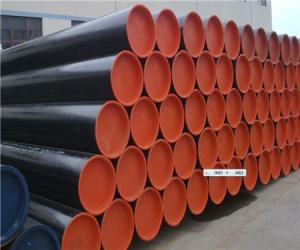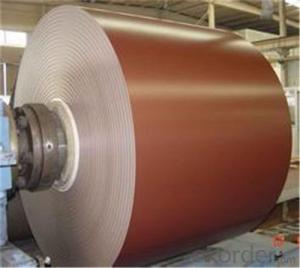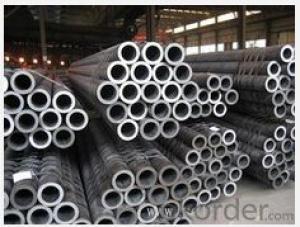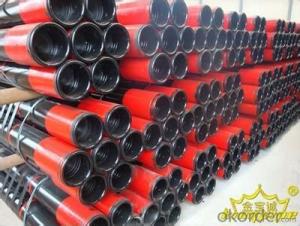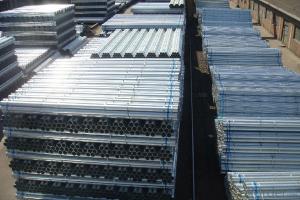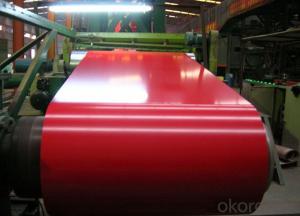Steel pipe external coating
- Loading Port:
- China Main Port
- Payment Terms:
- TT OR LC
- Min Order Qty:
- -
- Supply Capability:
- -
OKorder Service Pledge
OKorder Financial Service
You Might Also Like
Specifications
water pipeline inner-layer tape1 Butyl rubber as adhesive
2. SGS test report and DVGW certificate
3. corrosion protection
water pipeline inner-layer tape
State-of-the-Art Pipeline Protection for All Climates & Environments
System description:
WATER PIPELINE Inner -layer tape also be called pipe wrap anti-corrosion tape, polyethylene wrap tape.
water pipeline Inner-layer tapeT100 is engineered to assure a high bond to the primed pipe surface with excellent conformability characteristics, aggressive adhesive for corrosion protection and repair of main line coatings.
Inner-layer tapeT100 series is cold applied tape coating system for corrosion protection of Oil, Gas, Petrochemical, and Waste Waterburied pipeline, pipe can be buried, also can be underground ,overhead ,onshore and offshore .
Structure of water pipeline inner wrap tape
The specification of the tape consists of two layers, adhesive layer and film backing
Adhesive: butyl rubber
Film backing: Special blend of stabilized polyethylene
Features & Benefits
Provides a permanent bond to the primed steel pipes surface and provides protection against chemical electrolytic corrosion for underground pipelines.
long term corrosion protection
Worldwide reference lists. Established in-ground history
High chemical resistance under service temperature.
Outstanding electric property and permanent adhesion.
Cold applied, No release liner. Makes installation fast and easy.
Complies with EN-DIN 30672 and AWWAC-214 international standards and also ASTM standards.
Be used for water pipeline corrosion protection
System Properties
Type | T138 | T 150 | T165 | T180 | T 250 | T265 | T280 | |
Thickness | 15mil 0.38mm | 20mil 0.508mm | 25mil 0.635mm | 30mil 0.762mm | 20mil 0.508mm | 25mil 0.635mm | 30mil 0.762mm | |
Backing | 9mil 0.229mm | 9mil 0.241mm | 10mil 0.25mm | 10mil 0.25mm | 15mil 0.38mm | 20mil 0.508mm | 25mil 0635mm | |
Adhesive | 6mil 0.152mm | 11mil 0.279mm | 15mil 0.381mm | 20mil 0.508mm | 5mil 0.127mm | 5mil 0.127mm | 5mil 0.127mm | |
When used for ductile iron pipes inner layer 980-20 or 980-25 and outer layer 955-20 or 955-25 are recommended. | ||||||||
Elongation | ³300% | ³400% | ||||||
Tensile Strength | 55 N/cm | 70 N/cm | ||||||
Color | Black | White | ||||||
Peel Adhesion to Primed Pipe | 33 N/cm | |||||||
Dielectric Strength | 30 KV | |||||||
Dielectric Breakdown | 26 KV/mm | |||||||
Cathodic Disbandment | 0.24 in radius 6.4 mm | |||||||
Water Vapor Transmission Rate | < 0.1% | |||||||
Volume Resistivity | 2.5 x 1015 ohm.cm | |||||||
Impact resistance | 5.5Nm | |||||||
Penetration Resistance | <15% | |||||||
Performance | AWWA C-209,ASTM D 1000,EN 12068 | |||||||
Order information
Length | 100ft(30 M),200ft(60 M),400ft(120 M),800ft(240 M) |
Width | 2’’(50mm),4’’(100mm),6’’(150mm),17’(450mm),32’’(800mm) |
- Q: What is the compressive strength of steel pipes?
- The compressive strength of steel pipes can vary due to several factors, including the grade of steel, the manufacturing process, and the dimensions of the pipes. On average, steel pipes have a compressive strength ranging from 250 MPa to 650 MPa. The higher the grade of steel used, the greater the compressive strength tends to be. Moreover, larger diameter pipes typically exhibit a higher compressive strength compared to smaller ones. It's worth noting that the compressive strength of steel pipes can also be affected by temperature, corrosion, and external loads. Therefore, it is essential to refer to specific standards, specifications, or manufacturer's data to obtain accurate and detailed information about the compressive strength of a particular steel pipe.
- Q: Can steel pipes be used for signposts or street lighting poles?
- Yes, steel pipes can be used for signposts or street lighting poles. Steel pipes are commonly used in construction due to their strength, durability, and resistance to various environmental conditions. They provide a sturdy and reliable support structure for signposts and street lighting poles, ensuring their stability and longevity.
- Q: Can steel pipes be used for underground fire hydrants?
- Steel pipes are a suitable choice for underground fire hydrants due to their durability, strength, and corrosion resistance. They are commonly used in underground water supply systems, including fire hydrant installations. Furthermore, steel pipes can withstand high water pressures and offer a reliable and long-lasting solution for fire hydrants. However, it is important to ensure that the steel pipes used for underground fire hydrants are adequately coated or lined to prevent corrosion and maintain their structural integrity over time. Regular maintenance and inspections should also be carried out to detect and resolve any potential problems that may arise.
- Q: What are the different types of steel pipe end connections?
- There are several types of steel pipe end connections, including threaded, welded, flanged, grooved, and compression fittings.
- Q: What are the different types of steel pipe coatings for drinking water pipelines?
- There are several types of steel pipe coatings used for drinking water pipelines, including fusion bonded epoxy (FBE), polyurethane (PU), and polyethylene (PE). These coatings provide corrosion protection, prevent leaching of contaminants into the water, and ensure the durability of the pipes.
- Q: Can steel pipes be used for compressed air systems?
- Yes, steel pipes can be used for compressed air systems. Steel pipes are commonly used for their strength and durability, making them suitable for handling the high pressures involved in compressed air systems. However, it is important to ensure that the steel pipes are specifically designed and rated for compressed air applications to ensure safety and prevent any potential leaks or failures.
- Q: What are the different types of valves used with steel pipes?
- There are several types of valves used with steel pipes, including ball valves, gate valves, globe valves, check valves, and butterfly valves.
- Q: Can steel pipes be used for irrigation pumps?
- Yes, steel pipes can be used for irrigation pumps. Steel pipes are commonly used in irrigation systems due to their durability, strength, and resistance to corrosion. They can handle the high pressures and flow rates required for efficient irrigation, making them a suitable choice for connecting and transporting water from irrigation pumps.
- Q: What are the different types of coatings used on steel pipes?
- There are several different types of coatings used on steel pipes, including polyethylene, fusion bonded epoxy, coal tar enamel, and asphalt enamel. These coatings provide protection against corrosion, abrasion, and other forms of damage, ensuring the longevity and durability of the steel pipes.
- Q: What are the different types of steel pipes?
- There are several different types of steel pipes, including carbon steel pipes, stainless steel pipes, alloy steel pipes, and galvanized steel pipes. Carbon steel pipes are the most common type and are used for a wide range of applications. Stainless steel pipes are corrosion-resistant and often used in industries where hygiene is important. Alloy steel pipes are made from a combination of different metals to enhance their strength and durability. Galvanized steel pipes are coated with a layer of zinc to prevent corrosion and are commonly used in outdoor and marine applications.
Send your message to us
Steel pipe external coating
- Loading Port:
- China Main Port
- Payment Terms:
- TT OR LC
- Min Order Qty:
- -
- Supply Capability:
- -
OKorder Service Pledge
OKorder Financial Service
Similar products
Hot products
Hot Searches
Related keywords
